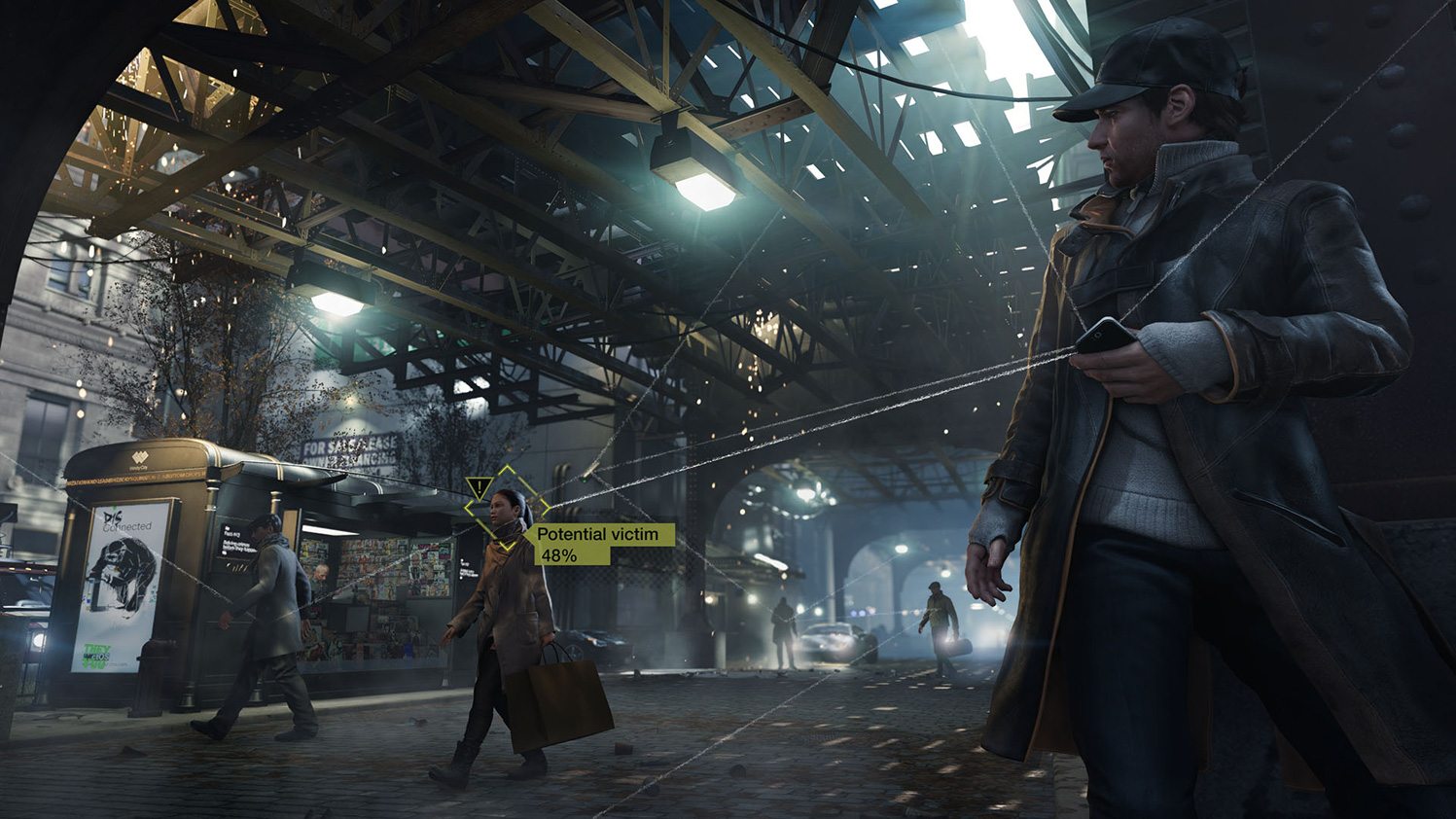Watch Dogs: Review
Hack the system, control the city: Luke Whitticase reviews new cyber-punk title Watch Dogs.
Since it’s unveiling at E3 2012, Watch Dogs has received considerable amount hype and anticipation in its favour. Even as delays, controversies and reports of graphical downgrade spread, the game continued to be fiercely marketed as a pushing point for Eighth Generation Consoles. Now the game is finally released and the public can finally have their say on one of the biggest releases of the year. Does it really live up to expectation?
The story is a revenge tale, following the exploits of Aiden Pearce, a computer hacker in search on the people responsible for the death of his niece. Set in a near-future Chicago, the entire city is run under a single operating system (ctOS), allowing Aiden the ability to hack into and alter different technologies and locations through the use of his smartphone.
Unfortunately, that’s all that there is to say about it. It just follows the same revenge plotline throughout, following basic redemption themes and alienation from the people around him. Aiden’s journey never feels unique, despite his saggy, expositional inner-monologue trying to convince you otherwise.
The possible socio-political themes of privacy invasion are cast aside, and the larger picture behind the scenes seems far more interesting that what we are being presented with. The side characters aren’t a massive help either, with very little personality beyond borrowed tropes, especially one character seemingly lifted from a David Fincher film. The missions themselves have variety but, from a storytelling perspective they never feel totally immersive.
The open world representation of Chicago is as detailed and large as you’d come to expect from Ubisoft Montreal. Although hefty and impressive, it lacks such verdant architecture as Assassin’s Creed II’s base-jumping renaissance landscapes, so the parkour mechanic feels a little limited. The city is densely populated with a variety of NPCS’s to interact with and vehicles to steal or order.
The much touted hacking mechanic is integrated easily and organically to gameplay at the push of a button, and really opens up opportunity for resourcefulness when in a stuck position. When integrated into the combat mechanics it works even better, along with the character’s fluid movements.
The stealth elements are also wonderful. As with the best stealth games, the most satisfying achievement is in others not knowing that you were even there. The use of video cameras to invade entire locations without entering is a spectacular challenge. The driving is the most disappointing mechanic, feeling heavy with slow reaction times, but even this you may eventually get to grips with.
 The open world representation of Chicago is as detailed and large as you’d come to expect from Ubisoft Montreal
The open world representation of Chicago is as detailed and large as you’d come to expect from Ubisoft Montreal
The side missions come in an interesting variety of ways, with many to be freely discovered, the most involving of which are probably the crime prevention missions. The digital trips are also fun little distractions too, although not something that you’ll probably devote hours too. The multiplayer aspect of gameplay is a very well handled enterprise. It has a fitting place within the world, with outsiders invading your own world to steal information. It’s a fun and stimulating approach as spontaneity often leads to further ingenuity on the players’ part. It carries both an aesthetic meaning within the games context. Some may find the invasions a chore, but others will surely relish the competition.
The graphics of the game have been one of the biggest push factors for Ubisoft, and while not totally up to the anticipated specifications, the game still manages to dazzle on the PlayStation 4 console. The smallest details such as leaves and litter blowing in the wind, and sparks from nearby fires really astound with the particle effects, and the lighting engine and water properties really add to the world’s environments.
Overall, despite some gleaming visuals and mechanics, the story lets Watch Dogs down. That said, the game feels very much like a foundation layer, and leaves room for much improvement. This is comparable to the leap from Assassin’s Creed to its sequel, which will hopefully take the series in bold new directions of intrigue. It feels as if Ubisoft have been trying to deal many of their best cards too early, and I hope that they haven’t blown all of their surprises too quickly in their first stab at this franchise.
[divider_top]
 Do you think Watch Dogs stands up to the hype? Give us a tweet at @BoarGames
Do you think Watch Dogs stands up to the hype? Give us a tweet at @BoarGames

Comments